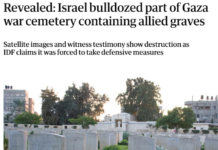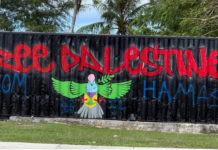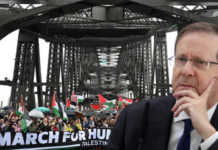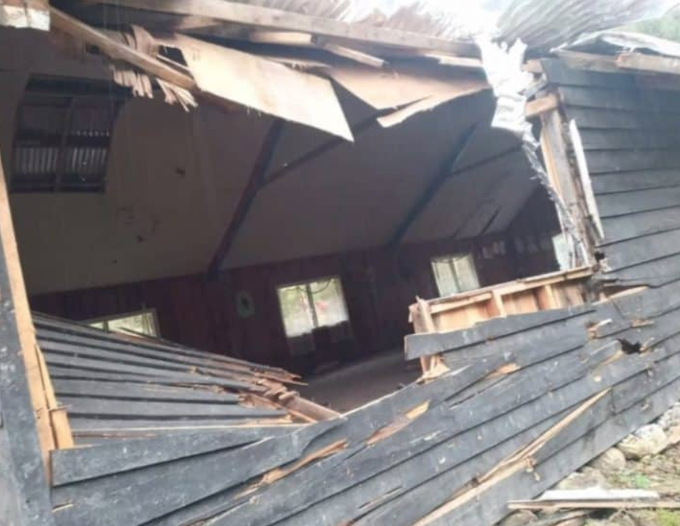
Tabloid Jubi in Jayapura
The West Papuan Council of Churches (WPCC) has condemned the Indonesian government’s Special Autonomy (Otsus) law ratified by the Jakarta parliament last week, describing it as racist and warning that Papuans could “become extinct”.
The WPCC was speaking in an online forum organised by the International Coalition for Papua (ICP) last Wednesday — the day before the draft bill was ratified.
It appealed to the Pacific and international community to stop the Indonesian government’s racism toward the West Papuans which was being perpetuated by the Otsus Law, widely condemned by Papuans.
- READ MORE: MRP, MRPB to challenge Jokowi in Constitutional Court regarding Otsus Law revision
- Papuan People’s Assembly deems Otsus Law evaluation ‘unlawful’
- Indonesian lawmakers adopt unpopular bill to reshape Papua
- Other West Papua special autonomy law articles
The forum included representatives of the World Council of Churches (WCC), the Pacific Islands Association of Non-Governmental Organisations (PIANGO), the United Evangelical Mission (UEM), the West Papua Project, the Franciscans International, and the Pacific Conference of Churches (PCC).
The Evangelical Church in Indonesia (GIDI) president Dorman Wandikbo said the Otsus Law had become an enabler for gross human rights violations in West Papua in the past 20 years, such as the Biak, Abepura, Paniai and Wamena massacres.
“Therefore, the Papuan people reject the continuation of the Otsus Law,” he said.
Wandikbo cited the result of a study conducted by the Indonesian Institute of Science (LIPI), which said the root of the problems in Papua was racism, which had caused Papuans to suffer culturally, politically, and economically despite being given a special autonomy.
Appeal for international help
He asked for the international community’s help in underlining the rejection of continuation of the Otsus Law.
Wandikbo also said that the covid-19 pandemic must not be used as an excuse to obstruct the United Nations special envoy on human rights from entering West Papua.
“This is an emergency situation. We, the Papuan people, will be extinct in 20 or 30 years if something is not done,” he said.
“God put us here in the land of Papua not to be killed, enslaved, nor called monkeys.”
Human rights lawyer Veronica Koman said international organisations such as the UN High Commissioner for Refugees (UNHCR), the International Organisation for Migration (IOM), and the International Committee of the Red Cross (ICRC) were effectively banned from entering the region.
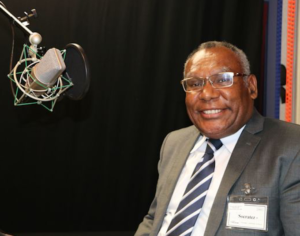
Reverend Socratez Yoman of the WPCC, who is also the head of the Aliance of West Papua Baptist Churches, said that Indonesian lawmakers had been debating the Special Autonomy Law while ignoring the law itself, which required the Papuan People’s Assembly (MRP) and the Papuan Legislation Council (DPRP) to be included in the evaluation and amendment of the law.
“In fact, the MRP and DPRP are not included in the deliberation process. Only Jakarta ha[d] to agree, the Papuan people are left out,” Reverend Yoman said.
Division into more provinces
Reverend Yoman also said that under the upcoming Otsus Law, the Indonesian government planned to divide the region — currently two provinces, Papua and West Papua — into more provinces despite the low population in Papua.
“Who is this [plan] really for? It will only result in more military basis, more migrants coming from the other provinces in Indonesia, and we will be a minority in our own land and eventually be extinct,” he said.
In the online forum, Sister Rode Wanimbo of the WPCC also gave updates on the situation in West Papua, as she had just returned from Puncak regency’s capital of Ilaga last Tuesday.
“There are 11 civilians who have been shot dead in Ilaga from April to July this year. There are also nine churches destroyed and bombed by the Indonesian military from the air,” she said.
Wanimbo said that there were currently 4862 displaced people accommodated in six districts in Puncak, not including the displaced people from Paluga village and Tegelobak village.
“They don’t build a tent, the community let the displaced people stay in their homes. No health services for these displaced people,” he said.
Food aid limited
“They got food aid from the local government once, but mostly it was from the church, parliament members, and the people,” he said.
Responding to the WPCC updates on the latest conditions in West Papua, WCC director of International Affairs Peter Prove said that the WCC had held a bilateral meeting in Geneva with the Indonesian government and other diplomats in a hope to bring the Papuan issue to light.
They were especially trying to address the internally displaced people in West Papua and pushing for humanitarian actors to be allowed to enter the region.
“I have also talked to the UN Special Adviser that West Papua has a high risk for genocide,” he said.
Republished with permission.




























